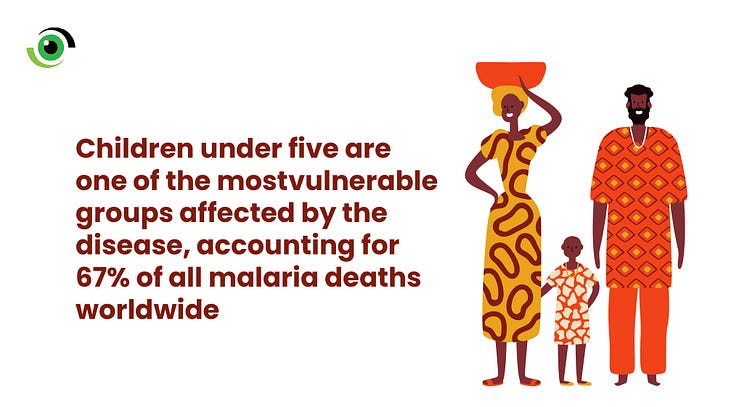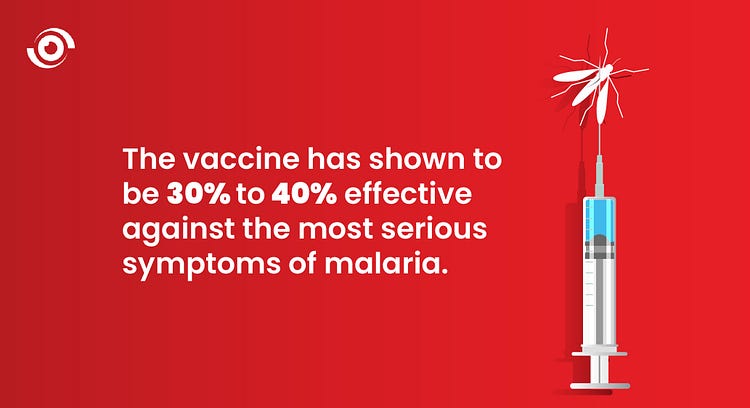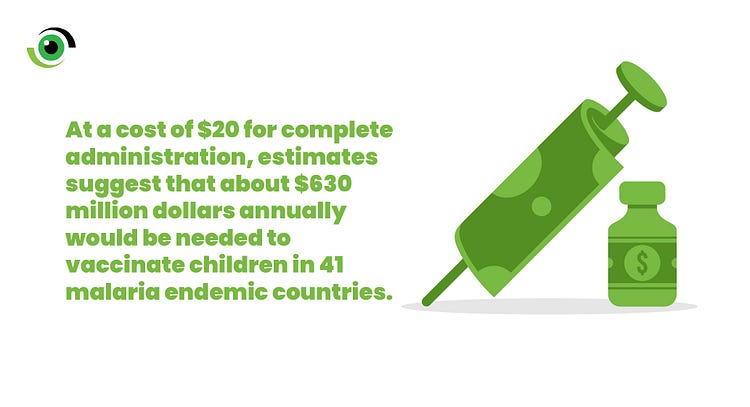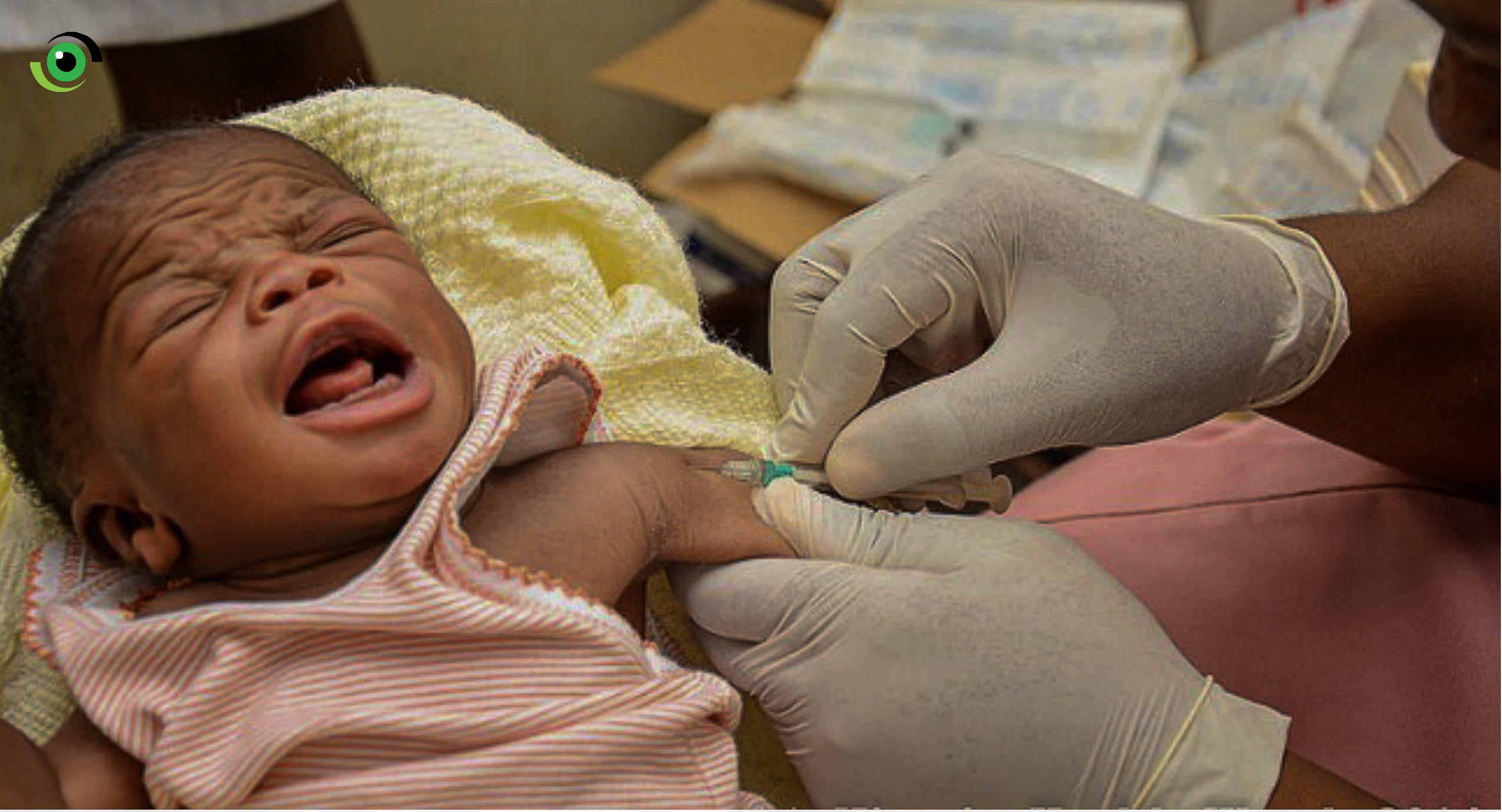After decades of trials, the World Health Organisation (WHO) has recommended a new malaria vaccine for children, adding a new development in the fight against the deadly disease. The vaccine RTS, S (Brand Name Mosquirix) is the result of over 30 years of research and development by GlaxoKlineSmith in partnership with PATH, the Malaria Initiative with support from the Bill & Melinda Gates Foundation. The recommendation has come after a long period of rigorous trials.
After the conclusion of phase III clinical trials in 2015 held in seven African countries, the WHO recommended pilot studies to determine the feasibility and safety of the vaccine outside of clinical trials as well as to inform broader rollout recommendations. Supported by GAVI, a multilateral vaccine initiative, 2.3 million doses of the vaccine have been distributed thus far in communities across Ghana, Kenya and Malawi since 2019. The vaccine has shown to be 30% to 40% effective against the most serious symptoms of the disease. WHO Director-General, Dr Tedros Adhanom Ghebreyesus deemed the breakthrough as “a historic moment. The long-awaited malaria vaccine for children is a breakthrough for science, child health and malaria control. Using this vaccine on top of existing tools to prevent malaria could save tens of thousands of young lives each year.”

Thus far, it has proven effective in countries with moderate to high disease burdens while also being accessible to those in hard-to-reach areas, reaching more than two-thirds of children who don’t have insecticide treated nets. Research also suggests that there has thus far been no negative impacts on other routine vaccines or other measures to prevent malaria. The vaccine has taken so long to develop due to the complicated nature of the parasite, designed to evade the immune system. This, coupled with the large variation in the types of malaria parasites, means that it has been difficult to nail down an effective vaccine.
Implications For Nigeria
This discovery is ground-breaking for countries like Nigeria, with the highest disease burden for malaria and contributes to 23% of malaria deaths worldwide. Integrating the Malaria vaccine into the immunisation schedule of children under five will go a long way in reducing the disease burden around the world, allowing children to fight off the worst effects of the disease.

Children under five are one of the most vulnerable groups affected by the disease, accounting for 67% of all malaria deaths worldwide. “For centuries, malaria has stalked sub-Saharan Africa, causing immense personal suffering,” said Dr Matshidiso Moeti, WHO Regional Director for Africa. “We have long hoped for an effective malaria vaccine and now for the first time ever, we have such a vaccine recommended for widespread use. Today’s recommendation offers a glimmer of hope for the continent which shoulders the heaviest burden of the disease, and we expect many more African children to be protected from malaria and grow into healthy adults,” she said.
With the vaccine costing about $5 a dose, it requires three shots to be administered at five, six and seven months old, and a booster shot at 18 months. At a cost of $20 for complete administration, estimates suggest that about $630 million dollars annually would be needed to vaccinate children in 41 malaria endemic countries. In order to ensure that everyone has access to the vaccine, there needs to be support from government agencies and donor organisations to ensure that there is access available to those who are most in need of it. With the new WHO recommendation, the Nigerian Ministry of Health has also given its approval, allowing organisations like the Ned Nwoko Foundation to pledge support for the rollout of the vaccine countrywide.

The breakthrough will have significant implications on the future of the fight against malaria. “From a scientific perspective, this is a massive breakthrough, from a public health perspective this is a historical feat,” said Dr Pedro Alonso, the director of the WHO Global Malaria Programme. “We’ve been looking for a malaria vaccine for over 100 years now, it will save lives and prevent disease in African children,” Alonso said. However, as the COVID-19 pandemic has highlighted, the rollout of the new vaccine comes with questions about equity in access and whether the malaria vaccine will be accessible to those who need it most. As discussions begin around accessing the vaccine, it is important that consideration is given to how the vaccine will be available to everyone.


